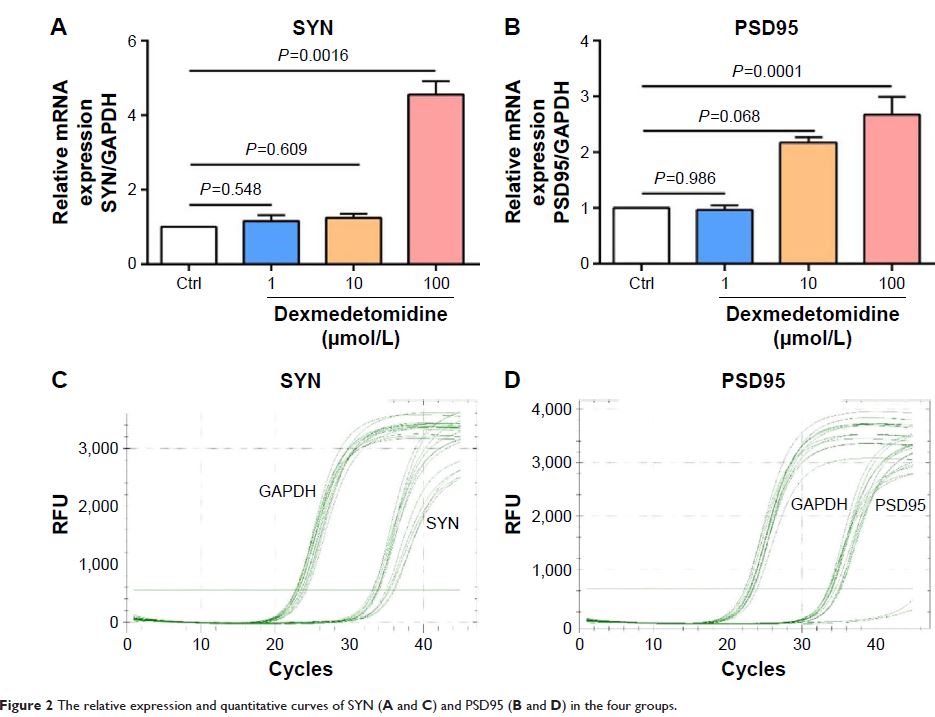109568
论文已发表
注册即可获取德孚的最新动态
IF 收录期刊
- 3.4 Breast Cancer (Dove Med Press)
- 3.2 Clin Epidemiol
- 2.6 Cancer Manag Res
- 2.9 Infect Drug Resist
- 3.7 Clin Interv Aging
- 5.1 Drug Des Dev Ther
- 3.1 Int J Chronic Obstr
- 6.6 Int J Nanomed
- 2.6 Int J Women's Health
- 2.9 Neuropsych Dis Treat
- 2.8 OncoTargets Ther
- 2.0 Patient Prefer Adher
- 2.2 Ther Clin Risk Manag
- 2.5 J Pain Res
- 3.0 Diabet Metab Synd Ob
- 3.2 Psychol Res Behav Ma
- 3.4 Nat Sci Sleep
- 1.8 Pharmgenomics Pers Med
- 2.0 Risk Manag Healthc Policy
- 4.1 J Inflamm Res
- 2.0 Int J Gen Med
- 3.4 J Hepatocell Carcinoma
- 3.0 J Asthma Allergy
- 2.2 Clin Cosmet Investig Dermatol
- 2.4 J Multidiscip Healthc

已发表论文
右美托咪定 (Dexmedetomidine) 对新生大鼠的海马神经元发育及 BDNF-TrkB 信号表达的作用
Authors Lv J, Ou W, Zou XH, Yao Y, Wu JL
Received 18 August 2016
Accepted for publication 27 September 2016
Published 9 December 2016 Volume 2016:12 Pages 3153—3159
DOI https://doi.org/10.2147/NDT.S120078
Checked for plagiarism Yes
Review by Single-blind
Peer reviewers approved by Prof. Dr. Roumen Kirov
Peer reviewer comments 2
Editor who approved publication: Professor Wai Kwong Tang
Abstract: The study aimed to
explore the effect of dexmedetomidine (DEX) on hippocampal neuron development
process and on molecular expression of brain-derived neurotrophic factor
(BDNF)-tyrosine receptor kinase B (TrkB) signaling pathway in neonatal rats.
The hippocampal neuron cells were isolated from newborn neonatal rats and
cultured in vitro. One control group and three treated groups with 1, 10, and
100 µmol/L DEX were used for the study. Cell activity and apoptosis were
detected by the MTT and terminal deoxynucleotidyl transferase-mediated
biotinylated uridine triphosphate (UTP) nick end labeling assays. The
synaptophysin (SYN) and postsynaptic density 95 (PSD95) were detected by
quantitative polymerase chain reaction. There was no difference in the
viability of neuron cells among the different dose groups of DEX and the
control group during days 2-10 (P >0.05).
Compared to the control group, there was no significant difference (P >0.05) in the expressions of
SYN and PSD95 in the groups treated with 1 and 10 µmol/L DEX, whereas
significant difference in the expression was observed in the group treated with
100 µmol/L DEX (P <0.01). Compared with the
control group, the expression of BDNF was significantly upregulated (P <0.05) in the group treated
with 100 µmol/L DEX. There were no significant differences in TrkB expression
among the four groups. The expression of p-N-methyl-D-aspartate receptor
increased with an increase in the concentration of DEX; however, only the high
dose revealed a significant upregulation compared with the control group. The
neuroprotective effect of DEX may be achieved by upregulating the expression of
BDNF and phosphorylation level of N-methyl-D-aspartate receptor.
Keywords: dexmedetomidine, hippocampal neuron, development, BDNF-TrkB
Keywords: dexmedetomidine, hippocampal neuron, development, BDNF-TrkB
